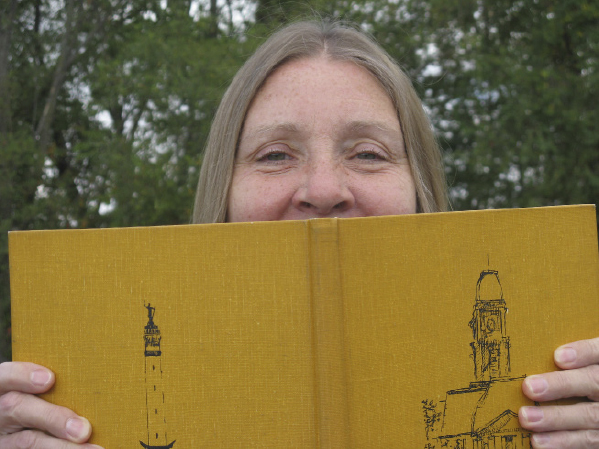Noblesville’s Colter Connections

When I wrote about Lucy Washington a few weeks ago I noted that she was the great-great grandmother of award-winning African American author Cyrus Colter.
Colter was born in Noblesville in 1910 and I’d originally planned to feature him in this week’s column, but in doing the research, I found myself getting sidetracked by his parents.
Cyrus Colter spent less than ten years here — all of them as a child — and information about his life in Hamilton County is scanty.
His parents, on the other hand, were quite active in local affairs during their time here. Although not as celebrated as their son, they nevertheless helped shape the character not only of Noblesville’s African American community, but of Noblesville as a whole.
I’ll write about Colter himself sometime, but right now I want to focus on his parents. After all, Black History Month IS about shining a light on lost or little known aspects of this country’s African American past.
Cyrus Colter’s mother, Ethel, was born in New Albany, Indiana. She was in her early teens, or close to it, when she moved here with her father, Reverend Miles Bassett, and mother, Mary (Lucy Washington’s granddaughter,) sometime in the 1890s.
Socially minded, Ethel Colter held offices in the First Baptist Church’s Sunday School, the local B.Y.P.U., (Baptist Young People’s Union,) and Eureka Chapter No. 36 of the Order of the Eastern Star. She was also a Grand Lodge officer of the O. E. S.
In addition, she belonged to several social clubs.
Sadly, her life was cut short by consumption (tuberculosis) in 1916. She was only 31 when she died.
At that time, Indianapolis’ African American newspaper, The Indianapolis Recorder, described her as “a highly respected and much loved woman, being active in the religious, club, fraternal, and social life of her hometown.”
Cyrus Colter’s father, James, was even more of a force in the community.
Originally from the Rockport, Indiana, area, James Colter came here in 1907 as a barber, but he did a lot more than cut hair and trim beards.
Like his wife, he held offices in the First Baptist Church Sunday School and the local B.Y.P.U. chapter.
He belonged to Noblesville’s African American Knights of Pythias lodge, and in 1914 he became the editor of the Indiana Pythian News.
For several years, he was the state representative for the Recorder, traveling around Indiana selling subscriptions and advertising. He also did some writing for the newspaper.
A staunch Republican, he participated in local politics as a speaker and organizer, and in 1908, he was a delegate to the Noblesville Township Republican Convention.
In 1917 he combined his political interests with his writing skills to compose a short play, “Mr. Voter,” which he staged as a benefit for the Calanthe Court, the women’s auxiliary of the Knights of Pythias. His humorous treatment of the suffragette question packed the house with a racially mixed audience.
The production included some vocal and instrumental numbers, calling attention to Colter’s musical side. (He managed several musical groups over the years and even sang in some ensembles himself.)
In 1918 he served as one of the marshals for the parade that celebrated the end of World War I.
These are just a few of the things he did while living here. I could easily have filled this column with his activities alone.
Sometime between 1918 and 1920, Cyrus Colter and his younger sister moved to Henry County with their grandparents, Reverend and Mrs. Bassett.
About that same time, James Colter also left Noblesville. He spent most of the rest of his life in Muncie and died there in 1946.
Thanks to Susan Sawyer for her research help.
– Paula Dunn’s From Time to Thyme column appears on Wednesdays in The Times. Contact her at younggardenerfriend@gmail.com
